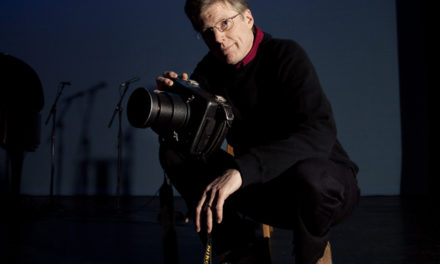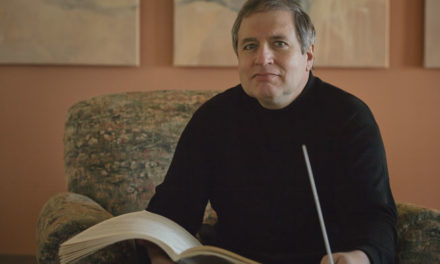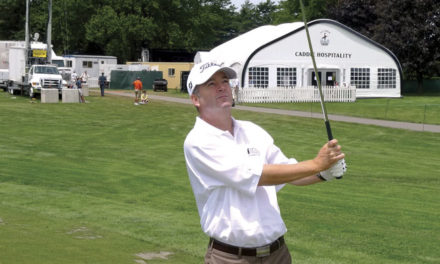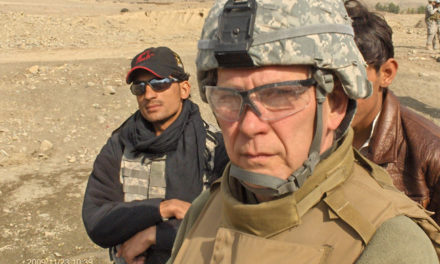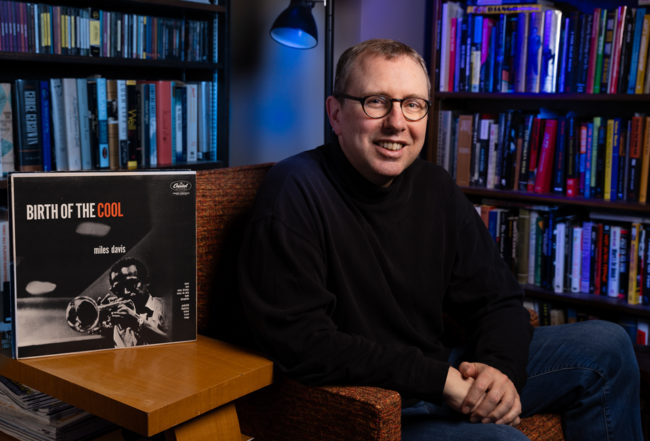
by JANET MANDELSTAM
David Brent Johnson was in his early 20s and unsure of what he was going to do with his life until one day he was sitting in a Bloomington coffeehouse and he became aware of the music that was playing. “It was a recording by Count Basie,” he recalls, “and some kind of weird light went on in my brain. I went across the street to a record store, found a recording, and got obsessed with listening to jazz.”
That obsession eventually led Johnson, now 54, to radio, where today he is jazz director and host of two programs on WFIU-FM: the weekly, nationally syndicated Night Lights, which chronicles the history of jazz, and Just You and Me, weekday afternoon programs that feature contemporary and classical jazz.
Once smitten, Johnson, a native of Indianapolis and graduate of Indiana University, took a job in a record store, where he was responsible for the jazz section. “A friend planted a bug of doing a radio show,” he says, “so I made a proposal to WFHB.” And soon he was a volunteer DJ at Bloomington’s community radio station. When Joe Bourne, then WFIU’s reigning jazz host, was on a leave in 2002, Johnson was tapped to fill in. “From then on they used me as a part-time backup,” he says. He also produced some jazz specials for the station and in 2004 he created Night Lights. He became the permanent host of Just You and Me when Bourne stepped down from the show in 2011.
Along the way, with a National Endowment for the Arts grant, Johnson produced a four-part documentary on the history of jazz in Indiana. “I can be a rah-rah cheerleader for Indiana jazz,” he says. “So much incredible jazz came out of the state: Hoagy Carmichael, Wes Montgomery, Freddie Hubbard, and Gennett Records in Richmond, which released the most important early jazz records. Black and white musicians played together. Jazz was a progressive force for racial integration long before baseball.”
Johnson credits the jazz program at the Indiana University Jacobs School of Music and its leader, the late David Baker, for creating a built-in local audience for jazz. “They are very savvy, loyal, and sophisticated,” he says.
When he’s not on the air, Johnson is at home in Bloomington’s Near West Side reading history and writing fiction—and urging young people
to follow their passion. “I got into doing jazz radio because I loved jazz, and I wanted to pass that along. Then I got lucky and it turned into something I could do for a living.”


